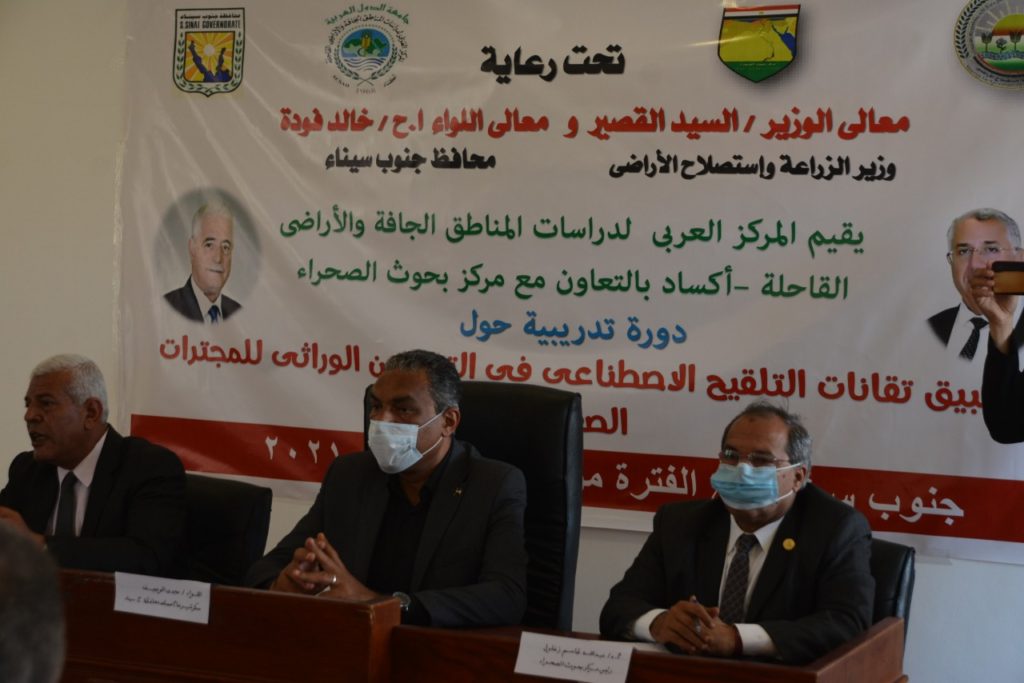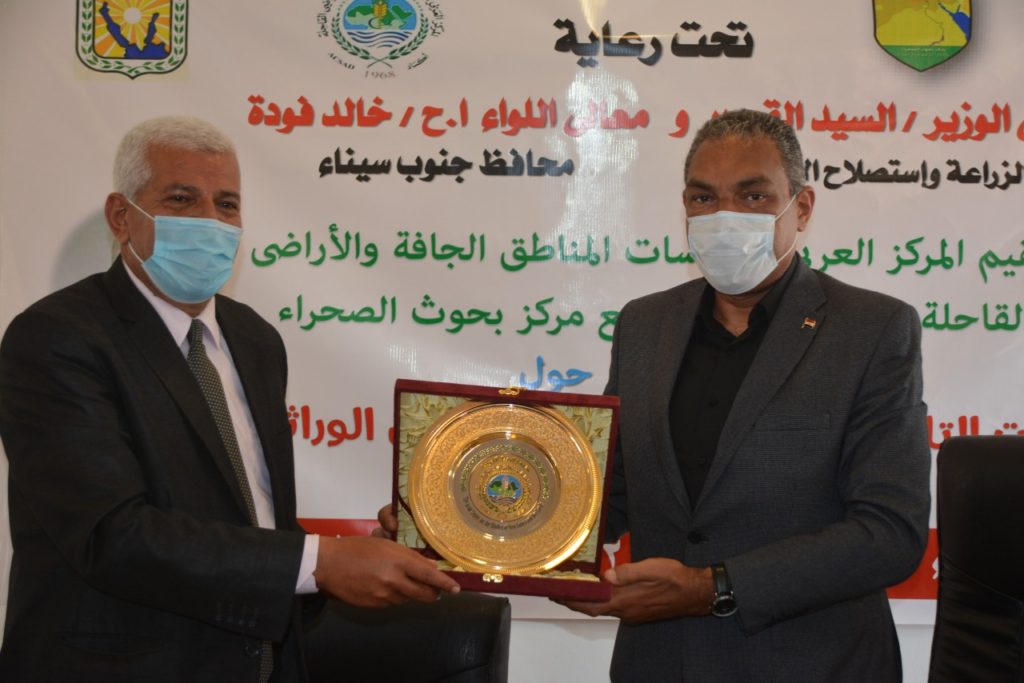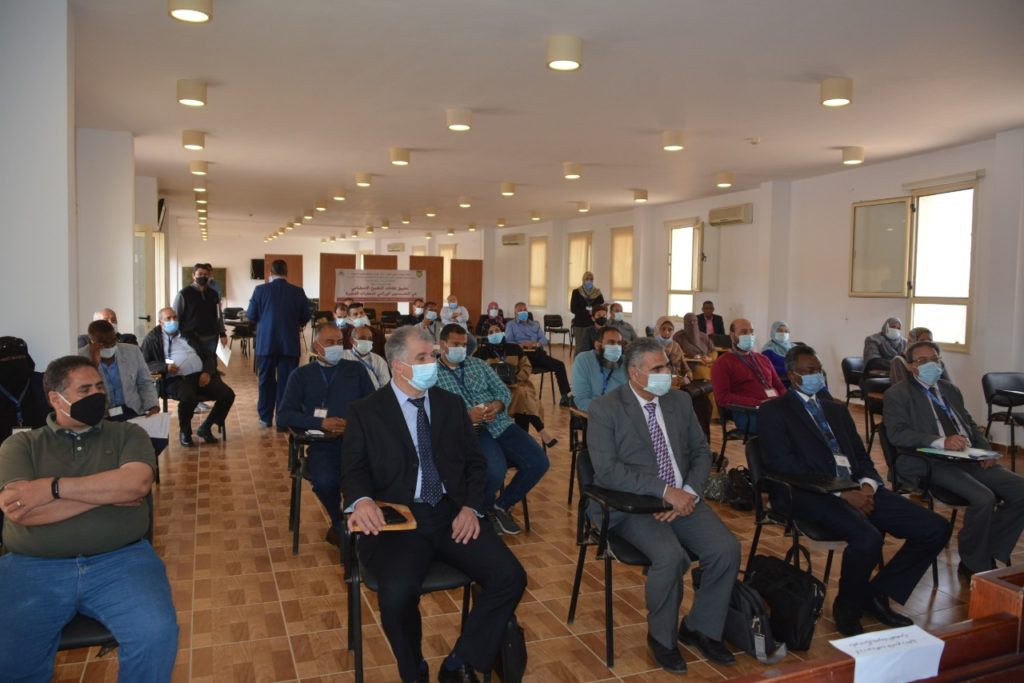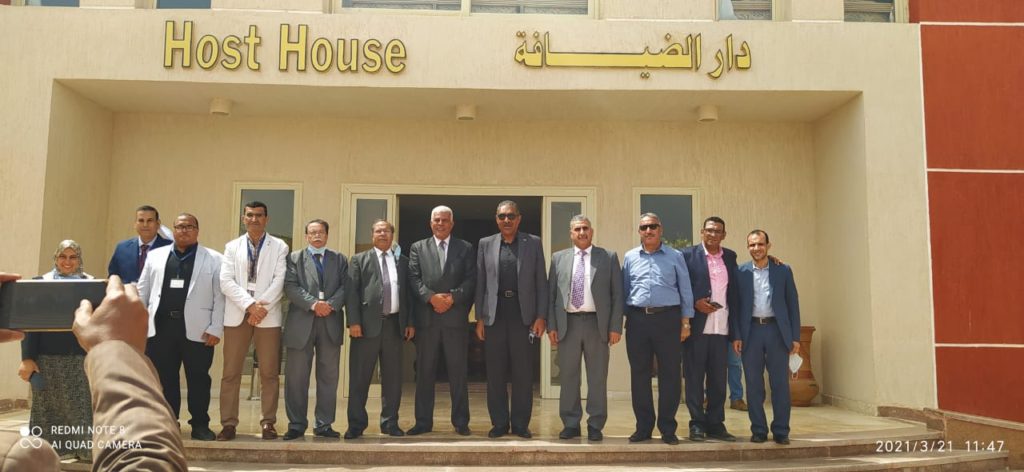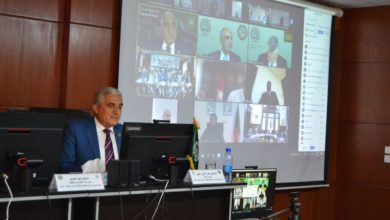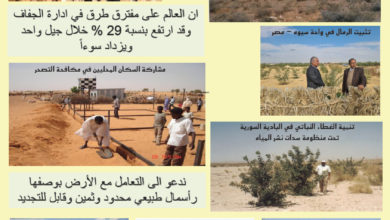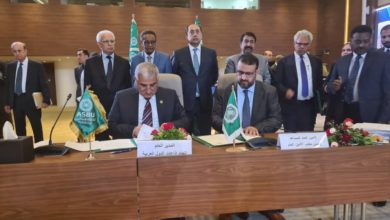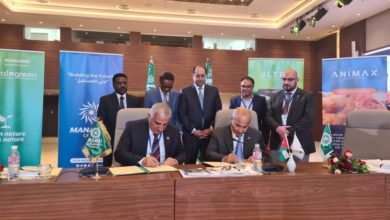ACSAD implements a workshop on” The Modern Artificial Insemination techniques for Small Ruminants” in the Arab Republic of Egypt.
The Arab Center for the Studies of Arid Zones and Drylands(ACSAD) organized a workshop in collaboration with the Desert Research Center entitled: “The Modern Artificial Insemination techniques for Small Ruminants.” Under the patronage of the Minister of Agriculture and land Reclamation, Al-Sayed Al-Qusayr, and the Major General, the Governor of South Sinai, Khaled Fouda, in the presence of ACSAD’s delegation included Dr. Abed Al- Monem Al-Yaseen, Dr. Lotfi Mousa, Dr. Muhammad Mousa, and in the presence of the head of Desert research Center, Dr. Abdulla Zaghlol, and the Major General, the assistant- Secretary-General of South Sinai, Magdy Al- Wasif.
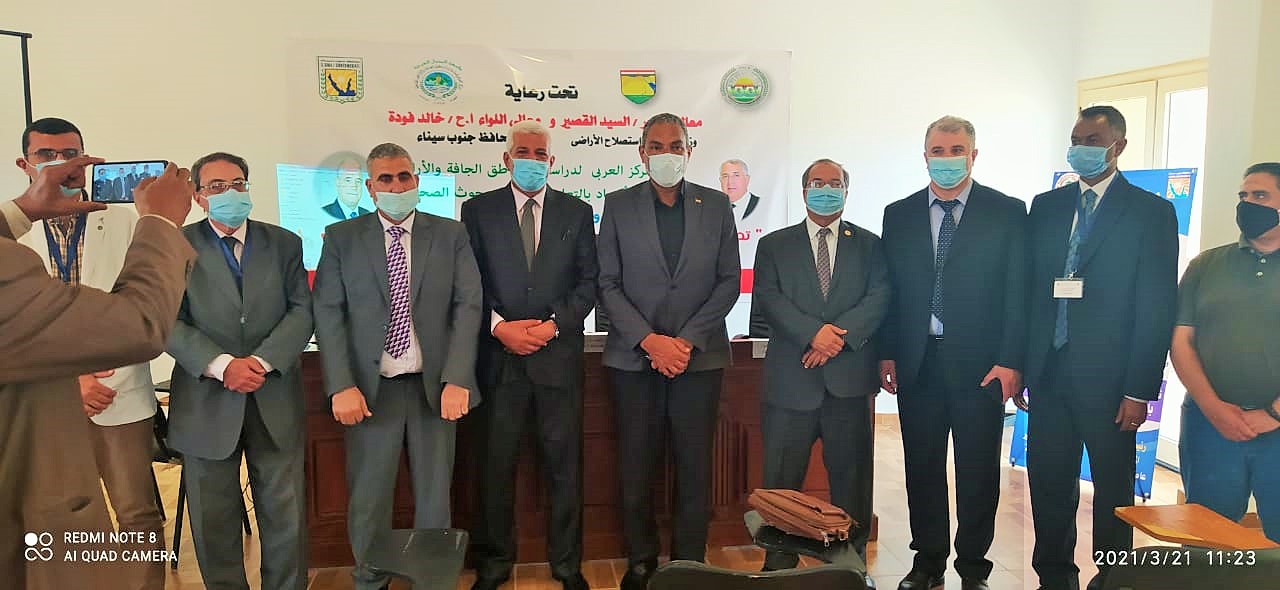
Dr. Nasr Edin Obaid said in a speech delivered on his behalf by Dr. Sayed Khalifa, the head of agricultural Syndicate and the manager of ACSAD’s office in Cairo: “This workshop aims to develop and improve livestock in particular and support Egypt’s policy in enhancing food security, which is one of the most original roles of the Arab Center for the Studies of Arid Zones and Dryland; by undertaking applied research and studies, implementing the projects according to coherent plans to benefit from the rapid scientific developmental technologies, and adapting them to fit the dry environments in the Arab region.
Dr. Obaid stressed the importance of benefit from modern techniques in the fields improving the genetic structure of cereal, developing varieties that were tolerant to drought and resistant to disease and had high productivity; with 77 varieties approved in the willing Arab countries and supplied them with hundreds of tons of superior varieties to increase the productivity by more than double. He also noted that ACSAD implemented several significant projects in Egypt that exceeded 24 developmental projects in good practices in agriculture, rainwater harvest, restoring natural resources, and conservation agriculture projects in Matrouh and the northwestern coast.
The Director-General added that ACSAD had implemented projects in Egypt that included: the protection of the infrastructure from the hazards of sand encroachment in north Sanai and palm trees development projects; implementing joint research programs that served the cultivation of strategic crops including (wheat, barley, and maize developing new varieties with high productivity that were more tolerant to environmental conditions, pests, and disease to reduce the food gap.
Dr. Obaid also clarified that the supplying community with water had been implemented through rainwater harvesting and good practices to improve the local community’s livelihood in collaboration with Desert Research Center and Agriculture Research Center. He praised the minister of agriculture for supporting ACSAD projects in Egypt, pointing out that all necessary equipment for artificial insemination should be located within Agricultural and Veterinary Directorates in the South Sinai to Protect livestock and poultry in the governorate.
The Director-General of ACSAD also pointed out the Arab countries had been provided with million seedlings and grafts from the drought-tolerant fruit trees; and ACSAD adoption to the integrated approach in combating desertification field, restoring degraded land, and reducing sand dunes through pilot projects in dealing with this degradation and following up the desertification situation in the Arab countries.
Dr.Obaid said that the Arab Center for the Studies of Arid Zones and Dryland prepared the first phase of the green belts project in the Arab world’s territories mandated from the Arab summits included Egypt; following up the benefit from the techniques of using sewage, sanitary drainage water, saline water, and the treatment in agriculture in a safe manner to preserve the productive ability, which would lead to supply the traditional fresh water in irrigating with non-conventional water, which contribute to limit the water deficit.
The Director-General also added that many water pilot projects had been implemented in the Arab countries by using modern technologies, mathematical models, and supply decision systems in water resources management, besides implementing several rainwater harvesting projects in those countries.
In addition to the mentioned above, Dr. Obaid noted that it had developed improved strains of Al- Awasi sheep and Shami goats females with high productivity of milk and twins that could adapt to the dry conditions of the Arab region. He also clarified that many success stories had been achieved in that field, where the average of Al-Awasi sheep milk production reached about 280kg per season, and the twins’ percentage reached 45%, while the average milk production of improved Shami goats exceeded 500kg per season, in addition to twin births by 76%.
Dr. Obaid indicated that thousands of improved sheep and goats were distributed to improve the Arabian breeds of those sheep and goats and distribute its frozen semen to the willing Arab countries. That recorded many scientific results and other achievements in applied techniques like manufacturing high-nutritional feed, propagation efficiency improvement, artificial insemination, embryo transfer, reducing the risk of disease transmission, and saving domestic strains from extinction and the danger of crises and disasters.
